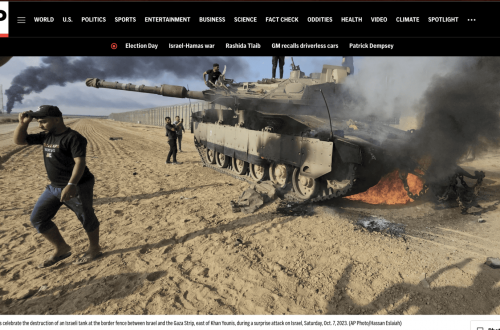Today is the seventh of July.
It seems the response to such a statement of fact might well be a ‘so what?’ followed by a shrug.
I was surprised to discover that none of our broadsheet newspapers, tabloids or TV news channels – or even the Google News aggregator – carries a front-page acknowledgement that on this day a mere six years ago, London was the scene of a terrible terrorist attack in which four British men blew up 52 innocent morning commuters. Only the (London) Evening Standard had a small feature, but it focused on the ‘phone hacking’ angle – as if merely remembering was not newsworthy on its own merits.
So my question to you is: is it right that there is no media interest in marking this day? Is it right that we appear to have ‘moved on’?
My view is that we should not forget this horrfic day six years ago. We should remember. We should talk about it.
What’s yours?
Kenan Malik in the NYT has this to say:
The real question is not how people like Mohammad Sidique Khan, the leader of the 7/7 bombers, came to be radicalized, but why so many young men, who by all accounts are intelligent, articulate and integrated, come to find this violent, reactionary ideology so attractive. To answer it, we need to look not at extremist preachers or university lecturers but also at public policy, and in particular the failed policy of multiculturalism.
…
Part of the difficulty in thinking about multiculturalism is that it has come to have two meanings that are rarely distinguished. On one hand, it refers to a society made diverse by mass immigration, and on the other to the policies governments employ to manage such diversity. The failure to distinguish between these meanings has made it easier to use attacks on multiculturalism as a means of blaming minorities for the failure of government policy.
…
Politicians effectively abandoned their responsibility to engage directly with minorities, subcontracting it out to often reactionary “leaders.”
If the prime minister wanted to get a message to the “Muslim community,” he called in the council or visited a mosque. Rather than appealing to Muslims as British citizens, politicians preferred to see them as people whose primary loyalty was to their faith and who could be politically engaged only by other Muslims. As a result religious — and Islamist — figures gained new legitimacy in their own neighborhoods and came to be seen by the wider society as the authentic voice of British Muslims.
More progressive movements became sidelined. Today “radical” in an Islamic context means someone who is a religious fundamentalist. Thirty years ago it meant the opposite: a secularist who challenged both racism in the streets and the power of the mosques. Secularism was once strong within Muslim communities, but it has been squeezed out by the new relationship between the state and religious leaders.
Read the whole article


